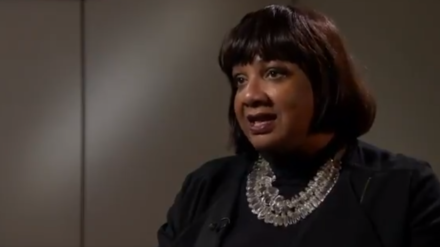
On the last day parliament sat before recess, the Home Secretary gave a statement in response to Stephen Shaw’s second review of the government’s approach to vulnerable people in immigration detention. We know the government likes to sneak out policy announcements at the end of the parliamentary term, so it’s not surprising that Sajid Javid’s timing was viewed sceptically by some – especially as Stephen Shaw submitted his report back in April.
The UK immigration detention estate is one of the largest in Europe with around 2,500 to 3,500 people in detention at any given time, and more than one in five detainees held for at least two months. This review looks at the progress – or lack of it – that the government has made since his first report in 2016. It’s an important issue, and the fact that parliament is not in session should not stop us debating the vital questions at hand.
The 2016 Shaw Review made 64 recommendations in total, but it is not clear how many of those have been implemented or what extra resources the government has put towards fulfilling them. Among the recommendations, Shaw argued the following groups should not be detained: pregnant women, victims of rape and sexual violence, those with mental health conditions and post-traumatic stress disorder, anyone with serious learning disabilities and transgender people.
Shaw said there should be an upper age limit for detention, and that there should be specific anti-bullying policies for LGBT detainees. The report also argued for independent medical examinations and resources and gave a number of recommendations about changes to the Home Office procedures.
Hearing personal accounts at Yarl’s Wood detention centre earlier this year, and reports from those working in this area, confirmed to me that some of these practices continue nonetheless. Shaw’s latest review both examines the implementation of the first report’s recommendations and makes new recommendations. A look at its findings makes it clear the government hasn’t done enough to properly address the findings of the 2016 Shaw Review.
While the new review noted a reduction in the number of people detained in the last year, from around 30,000 to around 28,000, Shaw expressed concern about many of the things he found and said that immigration detention should be a last resort. Additionally, Shaw noted that “when I was carrying out the review I came across many more vulnerable people in detention than I had expected”, and that the number of people held in removal centres for more than six months has increased.
Citing the example of a frail, 77-year-old Bangladeshi whom he came across in detention, he said “I don’t believe anyone over 70 should be in detention [as] these places are not designed for the elderly”. He poignantly added that “you couldn’t have agreed to her detention if you thought of her as a person, not as a case” and wrote that “each of the centre managers I spoke to said the number of vulnerable people in their care remained the same”.
After years of pressure on the issue of indefinite detention, the Home Secretary announced in his response that he would review how time-limited detention works in other countries. This is long overdue.
In my response to the Home Secretary I said this notion of indefinite detention is one of the things about our current immigration detention system that is most difficult to defend. When it’s put to ministers that the current system constitutes indefinite detention they have always said ‘no, of course not’ – but if you are in prison you have a date for release, and the reality is these people do not.
Indeed, only last year the former Minister for Immigration Brandon Lewis said “we do not have indefinite detention in this country”, adding that “in our policies is always a presumption of liberty. Individuals are detained for no longer than is necessary”.
This is patently not the case, as is made clear from the Home Secretary’s admission that he will belatedly look into the evidence concerning time limitations. In reality, if detention is discretionary, outside the due process and with little or no right to appeal, it amounts to indefinite detention. We do not need a review to know that indefinite detention is inhumane, costly and should end.
One significant development since the first Shaw review was published is that the Windrush scandal has come to light. Out of this, the long-term problems concerning immigration detention that some of us have warned about for some time have become widespread public knowledge.
It’s important not to lose sight of the fact that all of this has taken place because of a policy of which Theresa May was the architect: the hostile environment. Despite some of the change in rhetoric in recent weeks, the hostile environment remains in place. It was brutally summarised by the Prime Minister herself as ‘deport first, appeal later’.
The government must end the current disastrous immigration detention system and the failed ‘hostile environment’ approach. Only then will we see the real change we need.
Diane Abbott is Shadow Home Secretary and MP for Hackney North and Stoke Newington.




More from LabourList
‘I spent years telling workers the law couldn’t help them – that has changed’
Josh Simons resigns as Cabinet Office minister amid investigation
‘After years of cuts, Labour’s local government settlement begins to put things right’